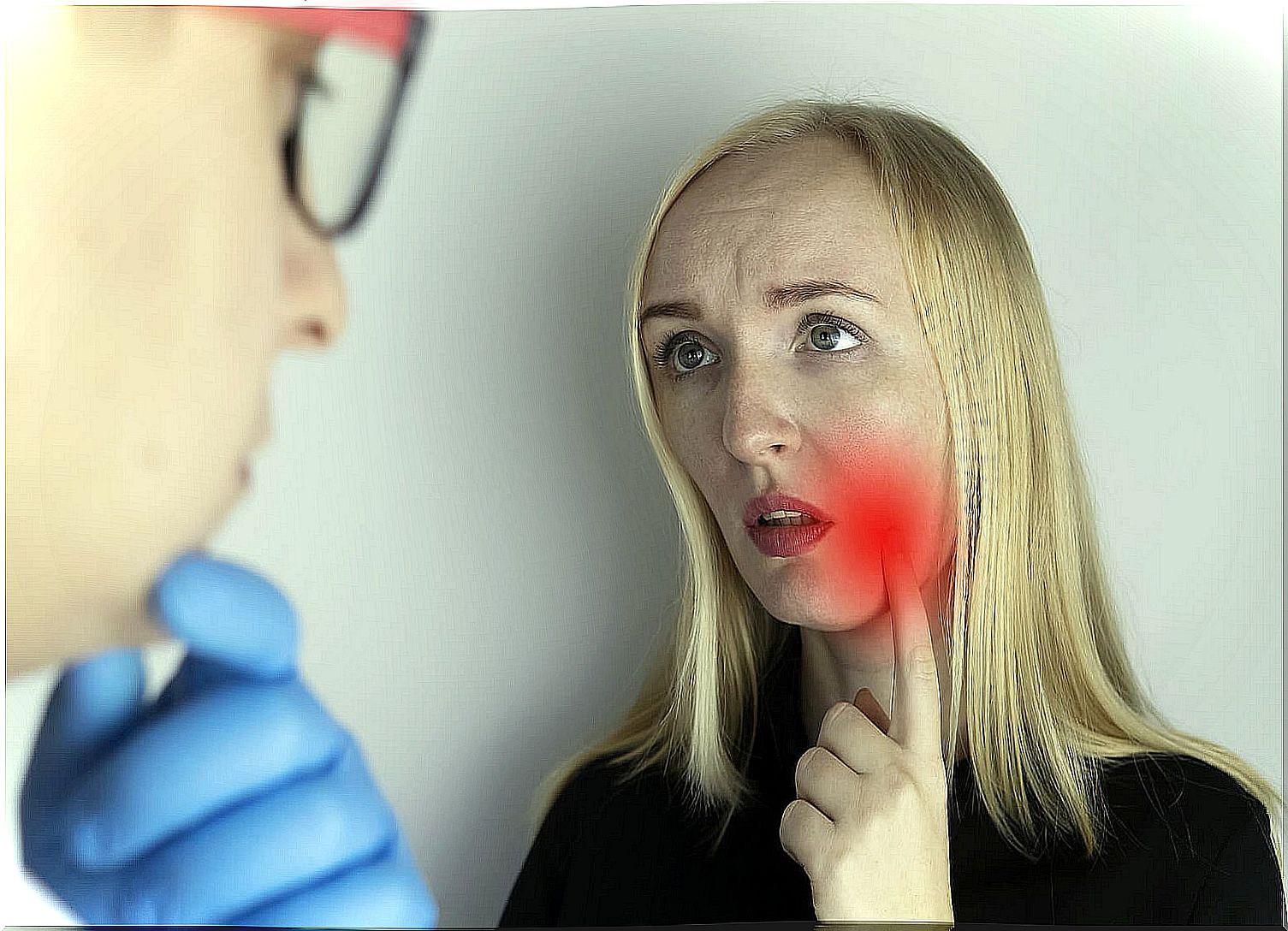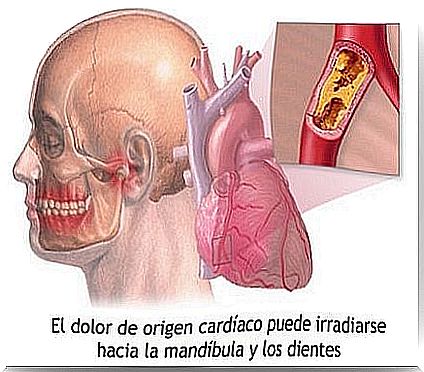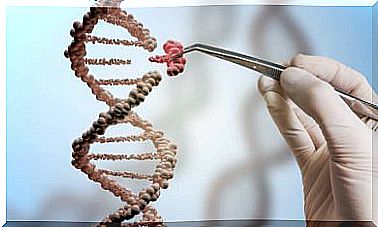Jaw Pain: 3 Important Keys You Should Know
Jaw pain can have various origins, however, some of them can be more serious. And it is that, sometimes, this discomfort can be the indicator of an ischemic heart disease.
However, it should be noted that, in 90% of cases, it is due to dental or joint problems. However, it is important that if you have any discomfort, doubt or concern, you should consult your doctor and follow his instructions.
Next, we explain 3 basic keys with which to better understand this type of medical condition. It is something quite common, so it can sometimes be experienced for different problems. However, it is generally not a serious condition.
1. Jaw pain: a very complex and delicate joint

The jaw joint or temporomandibular joint is made up of, on the one hand, of the jaw itself and; on the other, of those that are located just above the mouth (the maxilla).
- This structure allows you to open and close your mouth, speak and chew.
- The temporomandibular joints are very complex structures that contain muscles, tendons, and bones.
- Any problem in any of these delicate structures can lead to pain, pressure, cracking and even feeling the jaw dislodged.
Likewise, it is important to remember that jaw pain is always a symptom of a problem that needs to be treated. As soon as the following symptoms that we detail are noticed, it is important to consult with the dentist.
He will be the one to offer a diagnosis or refer, where appropriate, to some other specialist. For example, he could refer us to a traumatologist if the condition has to do with simple wear and tear on the joint.
These would be some indicators that would alert us to a problem in the temporomandibular joint :
- Grinding your teeth at night.
- Feeling a clicking or snapping sound when opening or closing your mouth.
- The pain extends from the jaw to the ear.
- The pain can be on only one side of the jaw or both.
- Throbbing headaches , earache, or pain and pressure in the back of the eyes.
- Sometimes the face can become inflamed due to an infection in this joint.
2. Causes of jaw pain

Osteomyelitis
Osteomyelitis is an infection that begins in the jaw joint itself. This condition can get complicated if it is not treated. The reason is that the infection can spread to the blood and other organs.
However, treating this problem early is simple and effective. To do this, you only need a course of antibiotics to prevent the problem from getting worse.
Dental abscess
A dental abscess is also caused by an infection, but this time it is located in the dental pulp or a nerve.
- It happens when a cavity is not treated and the bacteria spread to the root of the tooth itself, and to the surrounding tissues of the bone and jaw.
- Something as simple as visiting the dentist regularly will prevent this and other types of dental problems.
Bruxism
Bruxism could be another cause behind jaw pain. In fact, it is one of the most common causes.
- It mostly happens at night when, without realizing it, we clench our teeth and grind them. The next morning, headaches and jaw pain are common.
- To treat bruxism we must learn to manage stress. It is recommended to eat foods that reduce inflammation and wear a dental splint at night.
Osteoartitis
Degenerative osteoarthitis is associated with the passage of time and with certain degenerative diseases that cause wear and tear on the joints.
- This problem is not only localized in the knees, wrists or hips. As curious as it may seem, joint wear and tear and inflammation develop especially in the jaw.
- It is a painful medical condition that, at times, can cause the jaw itself to become hooked while we eat or speak.
It is necessary to put yourself in the hands of doctors to carry out a treatment that allows you to have a better quality of life.
3. Beware, jaw pain can be an indicator of a heart problem

When we have jaw pain, we almost always weigh on a dental problem or bruxism.
- As we pointed out at the beginning, we are facing a pain of which it is necessary to know the origin. And it is that, beyond a periodontal or musculoskeletal ailment, we may be facing a cardiac origin problem.
- Bilateral jaw pain (on both sides of the jaw) can be an early symptom of ischemic heart disease that is sometimes mislabeled as TMJ. If at any time you feel this sudden discomfort on both sides of the jaw, accompanied by a feeling of choking or dizziness, go to the emergency room.
In summary, although jaw pain is almost always easy to treat and does not involve excessive severity, we should never neglect it. Any discomfort can be an indicator of a problem that we must know as soon as possible.








